Hello everyone! As 2019 comes to a close, I've started looking around at what I've accomplished this year, where I stand now, and where I want to go next year.
On the surface, it doesn't seem like a lot has happened in 2019. I haven't published any new games, commissioned any artwork, or put anything new on Tabletopia or Tabletop Simulator. I've only sold a handful of copies of Manaforge, and I've only been to a couple of game conventions.
However, behind the curtain, a lot has been going on. I've put a lot of energy into designing the expansion for Manaforge, developing Sky Pirates, and getting my newest design Nebula off of the ground. And, of course, all of those required playtesting. LOTS of playtesting. Also, of the conventions I attended, one was Dice Tower Con, where IGA sold several of my games; another was the first year of Orlando Games Con, where Zack Crawford of The Thirsty Gamers did a good job of organizing a play space for lots of board games; and a third was HoliCON, where I was invited to demo Manaforge.
Here's a breakdown of what's been going on:
Manaforge Expansion
The project I want to complete most is to finish the expansion for my first game Manaforge. It's been difficult trying to settle on what exactly should be in the expansion; Manaforge has a ton of untapped design space and I'm struggling to figure out exactly what the expansion should do. Here's the list of design goals I'm fighting with:
For the moment, the Manaforge expansion is 'on hold'. I haven't given up on it, but it's currently sitting on the back-burner, waiting for some new ideas and a fresh perspective to help figure out where it needs to fit into the base game.
Sky Pirates
The project I have that is more finished is my area control game Sky Pirates. This game is in very good shape; the mechanics are pretty solid, the theme seems to fit well, and the balance isn't far off. Right now the game just needs a ton of playtesting to help chase out any problems I'm not seeing. I also need to put another big dent in the rulebook; the first draft is done and playable but I need to make some terminology and description changes to go with the results of my most recent playtests. This game is kind of in a holding pattern as well, but for a different reason: I'm trying to decide if I want to publish the game by myself or have someone else help me with it. Game development and production I can handle, it's the marketing and Kickstarter aspects that I'm not very good at. Dunno if I just need to find an adviser or two to help, or if I should bring in another publisher.
Nebula
My current focus is my new roll-and-write game, code named "Nebula" (pictured at the top). I'm still keeping this mostly under wraps for right now; I'm trying something new with a roll-and-write game that, to the best of my knowledge, hasn't been done before. (Of course, I say that, and then someone will come out with a new game that does exactly the same thing. Oh well.) It's still a novel idea, and I'm hoping it generates some attention by that alone.
I'm on my second prototype version of Nebula. The first idea was pretty much a disaster; it was slow and boring. I recently finished a rework of it and got to playtest it a couple of times. It's... well, slow and boring. But at least it's less so this time. Last time I playtested this, it didn't seem to go over well at all. This time, it seems like there might be a spark. I need to do some rebalancing to see if it's just the way the game is currently paced that's the problem. Hopefully in a couple of iterations it will start to become an interesting game.
HoliCON
I recently attended a convention in Ocala called HoliCON. I was invited by one of the convention organizers to go and demo Manaforge, get some extra exposure for the game. I had never heard of this convention before then, but I decided to give it a try, and I'm glad I did. While not a particularly large convention, there was a great group of friendly people that made us feel welcome there. I got in a few Manaforge demos, and even managed to sell a copy there due to my showing it off. I didn't have time to play many games, but I did manage to try something new:
- Fantastic Factories (4/5 Liked)
I played this game for the first time at HoliCON, and I'm glad I did! Interesting mix of dice placement and engine building. You use rolled dice to generate resources which you use to gain cards and add them to your tableau. Some cards give you ways to transform resources, while others you have to activate by using up your dice. Lots of fun! I kind of think of this in the same family as Gizmos, but with an extra level of complexity on top. Dunno if I would buy it (maybe if I found a cheap copy), but I'd definitely play it again if someone offered.
Other Games
While I've played a lot of games over the year, one of them bears mentioning because it helped me with my designs:
- Terraforming Mars: Turmoil expansion (4/5 Liked)
I recently received the latest expansion to Terraforming Mars, and it didn't disappoint! So far I've played this a couple of times; once as a 2-player game with all of the expansions mixed in, and a second time in a 5-player game also using the Prelude expansion. Overall, I think it's a good addition to the game. The expansion adds a political aspect to the game, where six political parties wrestle for control of the planet. Players may add their own delegates to various parties, and at the end of each generation the party with the most delegates becomes the one in charge. Each party gives a bonus for having certain tags, and imposes a rule that gives benefits to certain types of actions for the next generation. The expansion also introduces global events, which give players penalties or bonuses based on certain criteria, and the effects of the events can be altered (improved, for good events, or reduced for bad events) based on how the players' delegates are positioned. The expansion has a couple of rough points, like the complexity of calculating the delegates at the end of each generation slows the game down, or how a run of bad events can be brutal on all the players, but overall I enjoyed playing with this expansion and will be using it again.
This expansion is notable because it gave me some fuel for the Manaforge expansion. The event cards in Turmoil help to mix the game up and divert some of the player's focus away from the main task of building their engine. But in a way that's good because navigating the events correctly can actually give you a boost to your resources. Maybe Manaforge needs this kind of randomizing element, some global event that changes the way players value certain actions. There needs to be some care in there, though, as players don't have perfect flexibility to do anything they want, especially when it comes to the game's four elements; an event that benefits fire cards is great for someone playing all fire but is useless to someone playing water. The randomness needs to be, on some level, equally beneficial (or harmful) to everyone.
Cool Stuff Games
More of a side note, but I recently got Manaforge listed for sale on the CoolStuffInc.com website. Yay! Gamers now have an additional outlet to buy Manaforge. In addition, there are a few 'ding & dent' copies listed for sale on there, so if you're looking to get a bit of a discount on the game and don't mind a little box damage, then check that one out!
Looking Towards 2020
That's everything I have to report on for now. I likely won't post again until the new year. I still need to do a design post on the idea of Cognitive Load, but I haven't had much inspiration towards that recently. I'm going to need to give it a good push soon.
I hope everyone had had a good year, and I'm looking forward to what 2020 will bring. Happy gaming!
On the surface, it doesn't seem like a lot has happened in 2019. I haven't published any new games, commissioned any artwork, or put anything new on Tabletopia or Tabletop Simulator. I've only sold a handful of copies of Manaforge, and I've only been to a couple of game conventions.
However, behind the curtain, a lot has been going on. I've put a lot of energy into designing the expansion for Manaforge, developing Sky Pirates, and getting my newest design Nebula off of the ground. And, of course, all of those required playtesting. LOTS of playtesting. Also, of the conventions I attended, one was Dice Tower Con, where IGA sold several of my games; another was the first year of Orlando Games Con, where Zack Crawford of The Thirsty Gamers did a good job of organizing a play space for lots of board games; and a third was HoliCON, where I was invited to demo Manaforge.
Here's a breakdown of what's been going on:
Manaforge Expansion
The project I want to complete most is to finish the expansion for my first game Manaforge. It's been difficult trying to settle on what exactly should be in the expansion; Manaforge has a ton of untapped design space and I'm struggling to figure out exactly what the expansion should do. Here's the list of design goals I'm fighting with:
- Add More Cards [mandatory]: Create more item cards, give more choices in the recipe market, add more variety to the card effects. This is one of the things I'm trying to accomplish with the 'dark item' cards; two dark items are dealt out alongside the six standard items, giving the players more choices and more variability in what the cards do. This variability needs to be in both card effects and card power; there can and should be cheap but weak cards that leave resources free for other things, and super-expensive cards that give tons of points but leave you unable to do anything else in the turn.
- Add More Resource Outlets [mandatory]: Create more ways to spend resources. When I see Manaforge played, either when I'm playing or when I'm watching others play, I always sense some disappointment in the first couple of rounds of the game, when players are getting resource generation cards but not having any place to spend those extra resources. When I'm teaching the game, "I'm not allowed to build another card?" is a common question I get early on. I created the 'customer' cards to try to combat this, giving the players something else to spend mana on.
- Add More Point Vectors [mandatory]: Create another strategy option for scoring points. Right now, there are two major ways to do well in the game: build a solid engine in your workshop for churning out points each round, or build lots of high-point cards (typically done by going all in on wands). I want a third option, a third strategy that players can focus on. I was hoping to accomplish that with the customer cards, giving a chaotic but steady source of point opportunities for the players. I'm not convinced what I have now does that well, though; players often treat the customers as a side note instead of as a primary target.
- Increase Player Interaction [optional]: Add ways for your actions to affect other players and for other players to influence your decisions. Manaforge is not very good at this; really the only major interaction in the game is drafting the item cards, where you might take something that someone else wanted. My original idea was to add take-that effects but I learned that that doesn't fit well into the game's current feel. Right now I'm adding the customer cards, which are a first-come-first-served source of points, but that is just more of the same; taking something your opponent wants. I've been trying to add card effects that pull the other players into whatever it is that you're doing but those tend to get passed over in favor of more straightforward cards. I haven't found the formula for this yet.
- Vary the Value of Existing Game Elements [optional]: Best described as an 'event deck', the game might benefit from having periodic things happen that change the landscape of the game. For one round, fire items give bonus points, or water items are cheaper, or everyone gets a free earth gem, or whatever. Force the players to react to some sort of source of chaos. Or course, the game already has plenty of creating order from chaos in it, but this could be something completely out of the player's control. Dunno if this is needed, but it's something to investigate.
For the moment, the Manaforge expansion is 'on hold'. I haven't given up on it, but it's currently sitting on the back-burner, waiting for some new ideas and a fresh perspective to help figure out where it needs to fit into the base game.
Sky Pirates
The project I have that is more finished is my area control game Sky Pirates. This game is in very good shape; the mechanics are pretty solid, the theme seems to fit well, and the balance isn't far off. Right now the game just needs a ton of playtesting to help chase out any problems I'm not seeing. I also need to put another big dent in the rulebook; the first draft is done and playable but I need to make some terminology and description changes to go with the results of my most recent playtests. This game is kind of in a holding pattern as well, but for a different reason: I'm trying to decide if I want to publish the game by myself or have someone else help me with it. Game development and production I can handle, it's the marketing and Kickstarter aspects that I'm not very good at. Dunno if I just need to find an adviser or two to help, or if I should bring in another publisher.
Nebula
My current focus is my new roll-and-write game, code named "Nebula" (pictured at the top). I'm still keeping this mostly under wraps for right now; I'm trying something new with a roll-and-write game that, to the best of my knowledge, hasn't been done before. (Of course, I say that, and then someone will come out with a new game that does exactly the same thing. Oh well.) It's still a novel idea, and I'm hoping it generates some attention by that alone.
I'm on my second prototype version of Nebula. The first idea was pretty much a disaster; it was slow and boring. I recently finished a rework of it and got to playtest it a couple of times. It's... well, slow and boring. But at least it's less so this time. Last time I playtested this, it didn't seem to go over well at all. This time, it seems like there might be a spark. I need to do some rebalancing to see if it's just the way the game is currently paced that's the problem. Hopefully in a couple of iterations it will start to become an interesting game.
HoliCON
I recently attended a convention in Ocala called HoliCON. I was invited by one of the convention organizers to go and demo Manaforge, get some extra exposure for the game. I had never heard of this convention before then, but I decided to give it a try, and I'm glad I did. While not a particularly large convention, there was a great group of friendly people that made us feel welcome there. I got in a few Manaforge demos, and even managed to sell a copy there due to my showing it off. I didn't have time to play many games, but I did manage to try something new:
- Fantastic Factories (4/5 Liked)
I played this game for the first time at HoliCON, and I'm glad I did! Interesting mix of dice placement and engine building. You use rolled dice to generate resources which you use to gain cards and add them to your tableau. Some cards give you ways to transform resources, while others you have to activate by using up your dice. Lots of fun! I kind of think of this in the same family as Gizmos, but with an extra level of complexity on top. Dunno if I would buy it (maybe if I found a cheap copy), but I'd definitely play it again if someone offered.
Other Games
While I've played a lot of games over the year, one of them bears mentioning because it helped me with my designs:
- Terraforming Mars: Turmoil expansion (4/5 Liked)
I recently received the latest expansion to Terraforming Mars, and it didn't disappoint! So far I've played this a couple of times; once as a 2-player game with all of the expansions mixed in, and a second time in a 5-player game also using the Prelude expansion. Overall, I think it's a good addition to the game. The expansion adds a political aspect to the game, where six political parties wrestle for control of the planet. Players may add their own delegates to various parties, and at the end of each generation the party with the most delegates becomes the one in charge. Each party gives a bonus for having certain tags, and imposes a rule that gives benefits to certain types of actions for the next generation. The expansion also introduces global events, which give players penalties or bonuses based on certain criteria, and the effects of the events can be altered (improved, for good events, or reduced for bad events) based on how the players' delegates are positioned. The expansion has a couple of rough points, like the complexity of calculating the delegates at the end of each generation slows the game down, or how a run of bad events can be brutal on all the players, but overall I enjoyed playing with this expansion and will be using it again.
This expansion is notable because it gave me some fuel for the Manaforge expansion. The event cards in Turmoil help to mix the game up and divert some of the player's focus away from the main task of building their engine. But in a way that's good because navigating the events correctly can actually give you a boost to your resources. Maybe Manaforge needs this kind of randomizing element, some global event that changes the way players value certain actions. There needs to be some care in there, though, as players don't have perfect flexibility to do anything they want, especially when it comes to the game's four elements; an event that benefits fire cards is great for someone playing all fire but is useless to someone playing water. The randomness needs to be, on some level, equally beneficial (or harmful) to everyone.
Cool Stuff Games
More of a side note, but I recently got Manaforge listed for sale on the CoolStuffInc.com website. Yay! Gamers now have an additional outlet to buy Manaforge. In addition, there are a few 'ding & dent' copies listed for sale on there, so if you're looking to get a bit of a discount on the game and don't mind a little box damage, then check that one out!
Looking Towards 2020
That's everything I have to report on for now. I likely won't post again until the new year. I still need to do a design post on the idea of Cognitive Load, but I haven't had much inspiration towards that recently. I'm going to need to give it a good push soon.
I hope everyone had had a good year, and I'm looking forward to what 2020 will bring. Happy gaming!


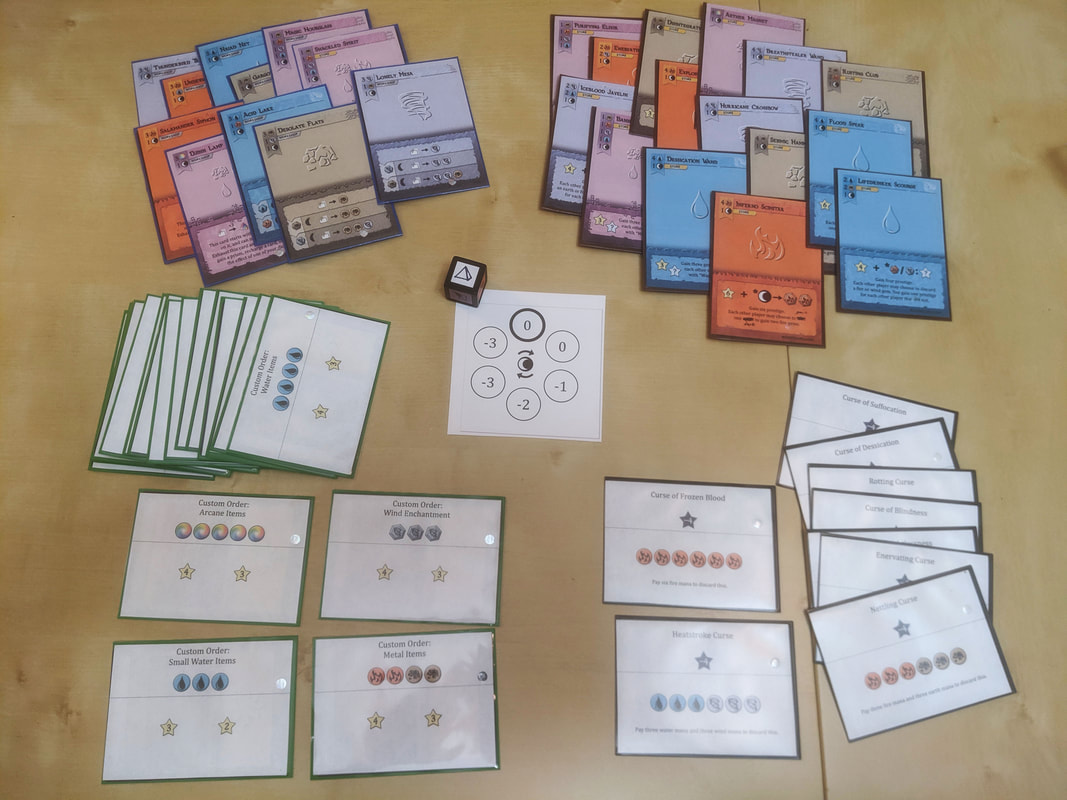


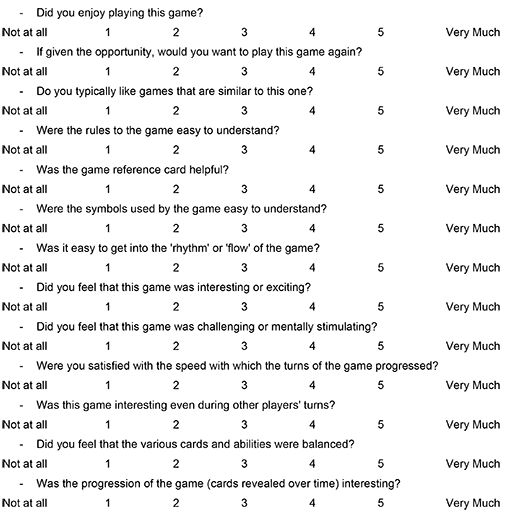
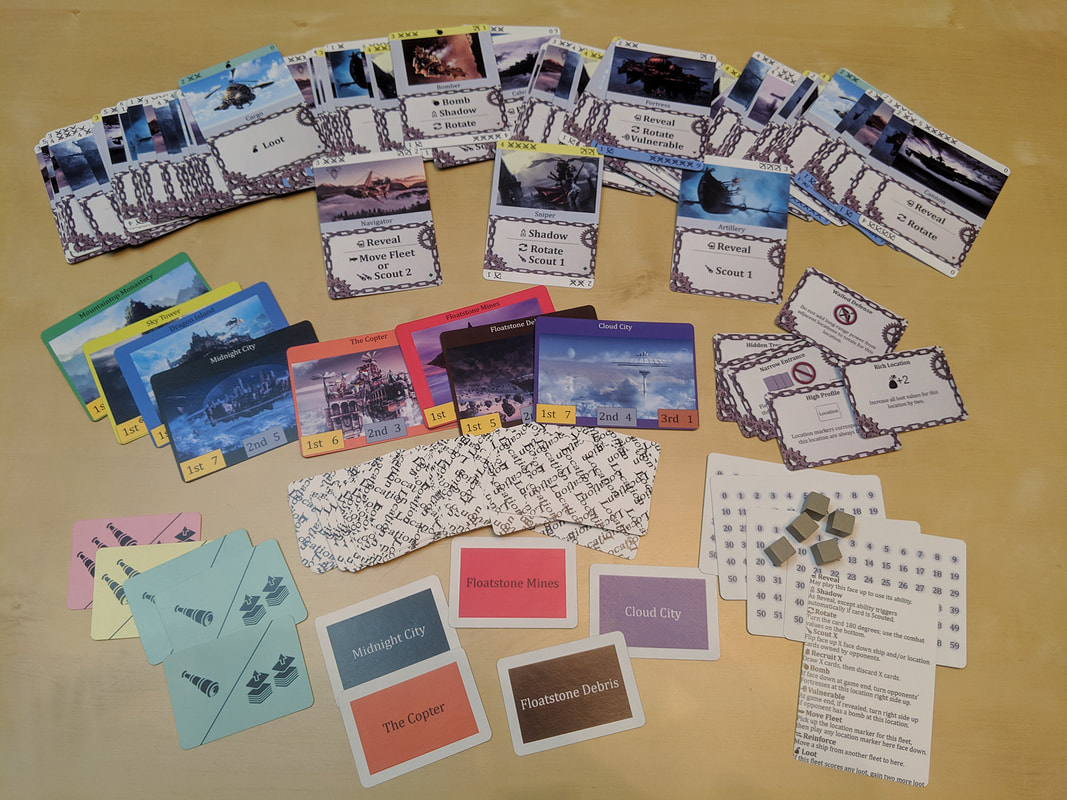

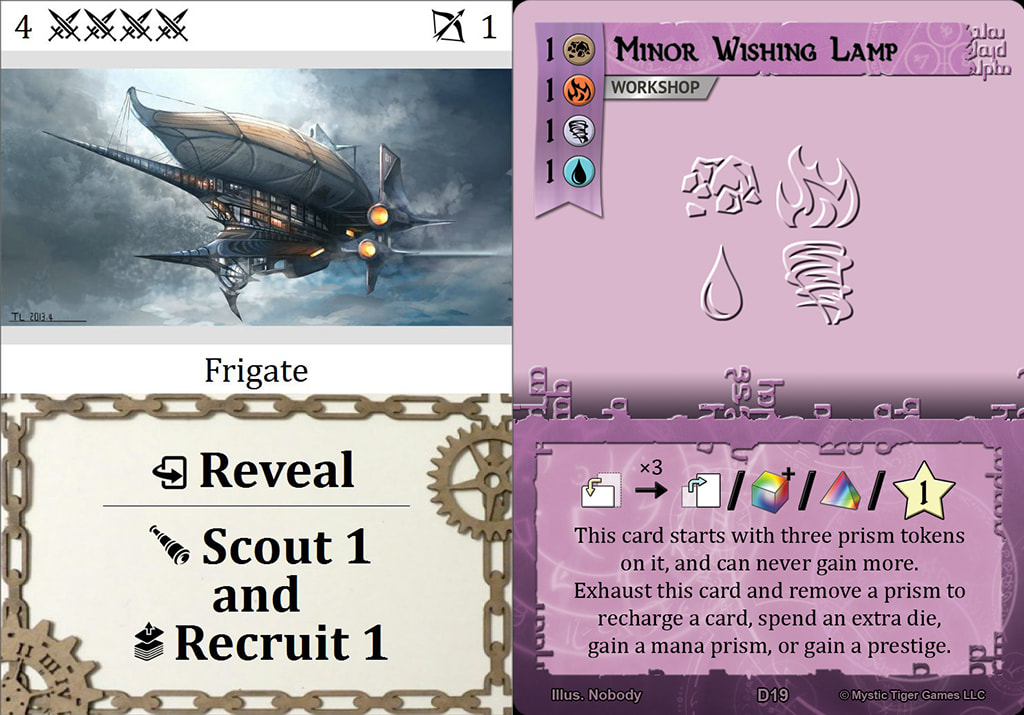
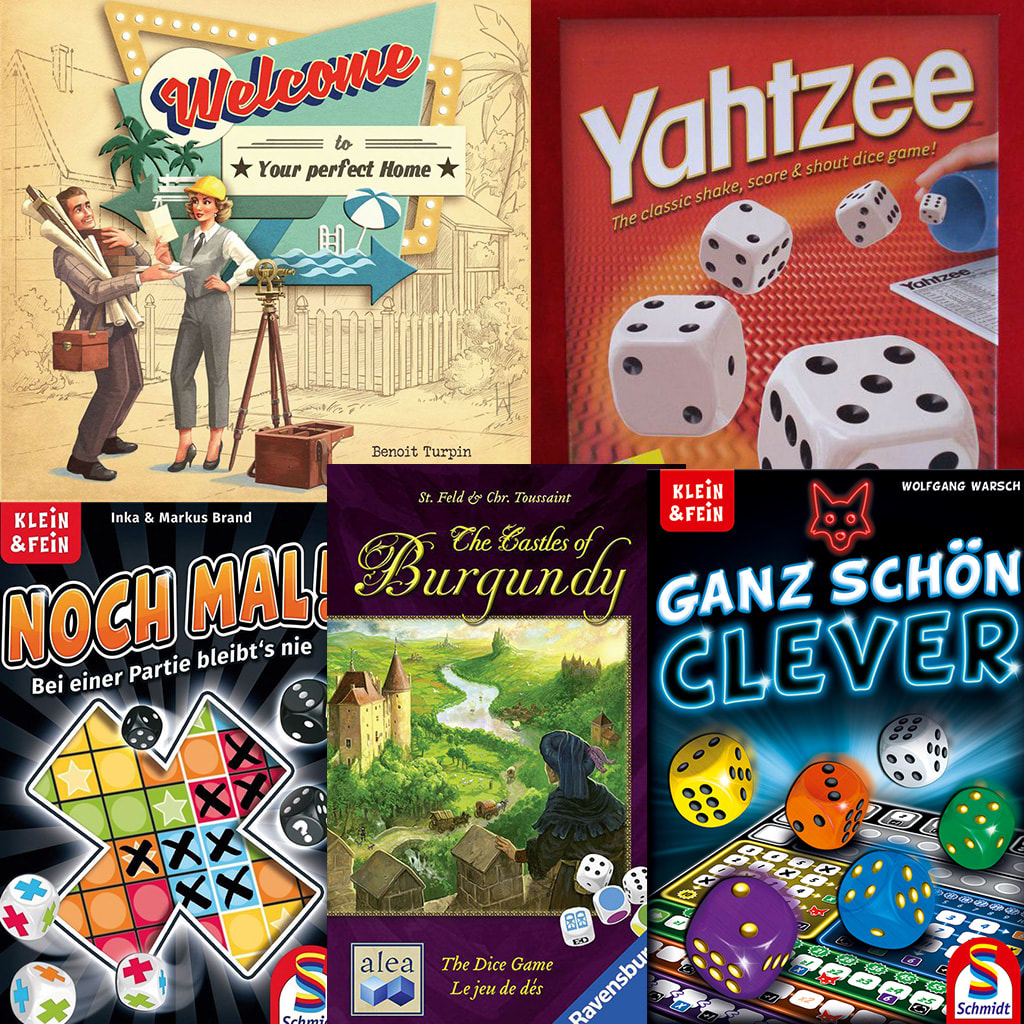
 RSS Feed
RSS Feed